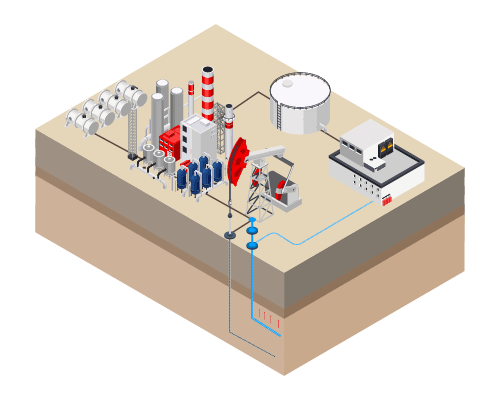PFAS Waste Management
and Remediation Services
for EPA Compliance
Pickup, Transportation and Disposal
For quick pricing, call and talk to an expert
Safeguard Your Farmland
Protect your farmland from PFAS contamination with tailored solutions for soil, crops, and water.
Safe PFAS Management
We support fire inspectors in managing hazardous materials in high-risk facilities, ensuring safety and compliance.
Protect Runways & Communities
Airports are key PFAS sources. We manage PFAS in fire systems and materials, ensuring compliance and safety.
Navigating the Changing PFAS Compliance Landscape, Trust our Experience to Safeguard Your Business
For over 30 years, MCF Environmental Services has been a leader in compliance and risk management. Today, we stand as a trusted guide empowering industries to safely and effectively manage the new areas of PFAS regulations.
The regulatory landscape for PFAS is shifting. More states are enacting laws to address the unique risks PFAS (per- and polyfluoroalkyl substances) chemicals pose. PFAS impacts multiple sectors, from fire protection and agriculture to aviation and manufacturing. An increasing number of states are introducing specific compliance requirements which businesses will need to follow. Staying updated is crucial for protecting your business and aligning with both state and federal standards.
PFAS regulations can be particularly challenging for businesses to understand and act upon because of the differing laws per state. One state can have vastly different PFAS regulations than a neighboring state, making navigating compliance a veritable minefield for businesses affected by these updates. Some businesses have finalized regulations while others are in the process of implementing guidelines for the coming year. Understanding the actions your business needs to take is quickly becoming an essential part of maintaining full compliance. MCF Environmental has the experience and industry insights to stay current and up-to-date with all of the latest developments, so you can enjoy the peace of mind that comes with partnering with a trusted resource.
We dispose of the following Pre- and polyfluoroalkyl (PFAS):
Aqueous Film-Forming Foams (AFFF)
Industrial Discharge and Sludge
PFAS-Contaminated Soils
Landfill Leachate
Textiles and Coatings
Pesticide and Herbicide Disposal
Food Packaging Waste
Spent Filters and Resins
Electronic Waste
Request Lab Analysis Test
Request a lab test and receive expert guidance on proper disposal. Our specialists provide fast, accurate results to help you meet compliance and safety standards.
Please note we do not provide disposal services for household waste
Why Choose Us for PFAS Compliance
Navigating the PFAS regulatory landscape can be challenging. Our team offers in-depth knowledge and up-to-date resources to ensure your business meets and exceeds the latest standards. With our support, you can stay ahead of compliance requirements while focusing on what you do best.

PFAS Regulation Compliance Demands Experience and Expertise
With PFAS compliance affecting a wide range of industries, from fire suppression systems to airport operations, businesses need proactive solutions for what is generally understood to be one of the most challenging classes of waste materials. Staying informed and compliant doesn’t need to be an overwhelming task. Mitigate the significant risks and operate responsibly with the help of a known leader in waste disposal, MCF Environmental Services.
PFAS Regulations Through the Years
PFAS chemicals have been in use for over 70 years. From providing stain and water resistance to making up a key element of firefighting foam, the chemicals’ unique ability to resist being broken down is also what makes them a danger and a challenge to address. It wasn’t until the 1990s that the EPA and independent researchers started sounding the alarm on the potential negative health impacts of PFAS. That’s also when the first PFAS-related lawsuits began and pressure mounted for regulations on both the federal and state level.
In 2006 the EPA launched the PFOA Stewardship Program to work with many of the largest manufacturers of these chemicals to work to reduce and eventually eliminate emissions, a goal which was met by those involved. Some preliminary restrictions and recommendations were put in place, but nothing that addressed on a large-scale the growing pervasive use of these “forever chemicals.”
2024 was a turning point in PFAS regulation, spurred on by the EPA’s four-year PFAS Strategic Roundup, it saw new limits on PFAS levels in drinking water, marking a major step for federal PFAS regulations. Eleven states also currently have a Maximum Contaminant Levels (MCLs) while Maryland, New Hampshire, Rhode Island, Vermont, and Virginia all have measures for further PFAS regulations regarding water. Known as the Final PFAS National Primary Drinking Water Regulation, it illustrates a major step by the EPA to enforce limits on PFAS in drinking water, enacting limits for five PFAS chemicals, commonly referred to as GenX Chemicals along with mixtures of other PFAS chemicals. The Toxic Substances Control Act (TSCA) has also played a key role in limiting the manufacture and importation of PFAS chemicals over the past two decades. One of the most recent updates, the Significant New Use Rule (SNUR), prevents the manufacturing and processing of “inactive PFAS without EPA review.” This applies to a total of 329 PFAS chemicals.
Safe and Effective Hazardous Waste Disposal Methods
To address hazardous waste management responsibly, we employ specialized disposal methods that prioritize safety and environmental protection. Our solutions include Hazardous Waste Landfills, designed to contain and prevent contamination; Incineration, a high-temperature process that effectively destroys persistent chemicals like PFAS; and Deep Well Injection, where waste is securely isolated in deep underground formations, keeping it away from groundwater sources. These disposal options ensure hazardous materials are managed in the safest, most sustainable ways possible.

Hazardous Waste Landfills: Specialized landfills designed to handle hazardous waste ensuring that it does not contaminate the environment.

Incineration: A high-temperature method designed to destroy PFAS compounds effectively. Incineration ensures the breakdown of these persistent chemicals into less harmful substances, helping to minimize environmental impact.

Deep Well Injection: Injecting hazardous materials deep underground into isolated rock formation, keeping the waste far from groundwater sources.
PFAS Regulations on a State-by-State Level
States are slowly adding restrictions, bans, and regulation to a variety of industries as new research emerges. It’s important to remain up-to-date on changes to local, state, and federal regulations, particularly when it comes to PFAS chemicals, since this is such a developing and evolving environmental and health issue. Every industry which utilizes PFAS should expect further changes. This makes it even more important to partner with a waste management service to ensure your business remains compliant.
Here is a brief overview of some of the most recent proposed and enacted bans or restrictions on a state level. This list serves as a reference, but any business should do their own research or rely on a trusted waste partner to guide them through the most up-to-date developments.
Children’s products
Cleaning products
Firefighting foam
Food packaging
Personal care products
Plastics
Textiles
The above list is by no means comprehensive, as new legislation will continuously be introduced and laws added. In just 2023 alone, over 30 states introduced bills and in that year alone 44 PFAS-related laws were enacted.
WHAT OUR CUSTOMERS ARE SAYING
“MCF’s prices are great and all their service people are wonderful! They’re easy to get a hold of whenever I call and very accommodating if I have a special request. I always recommend MCF Environmental Services to anyone that needs regulated waste disposal.”
CAROL ATLANTA | I.D. GROUP FAYETTEVILLE, GA





